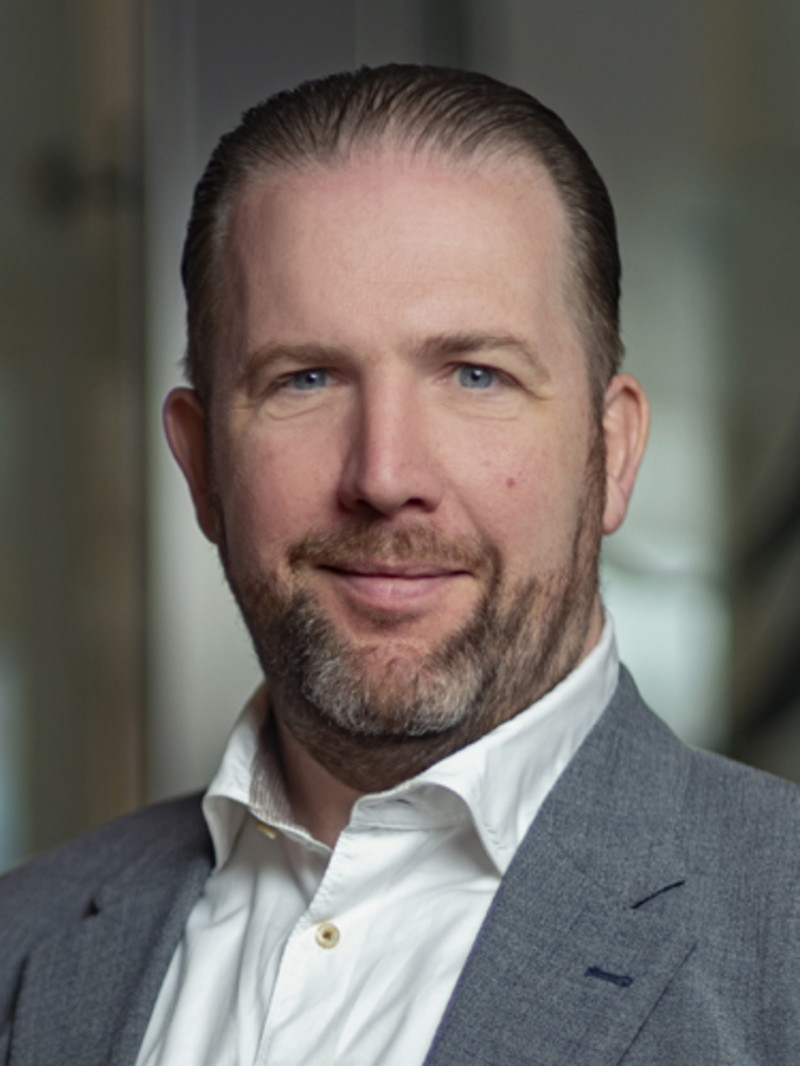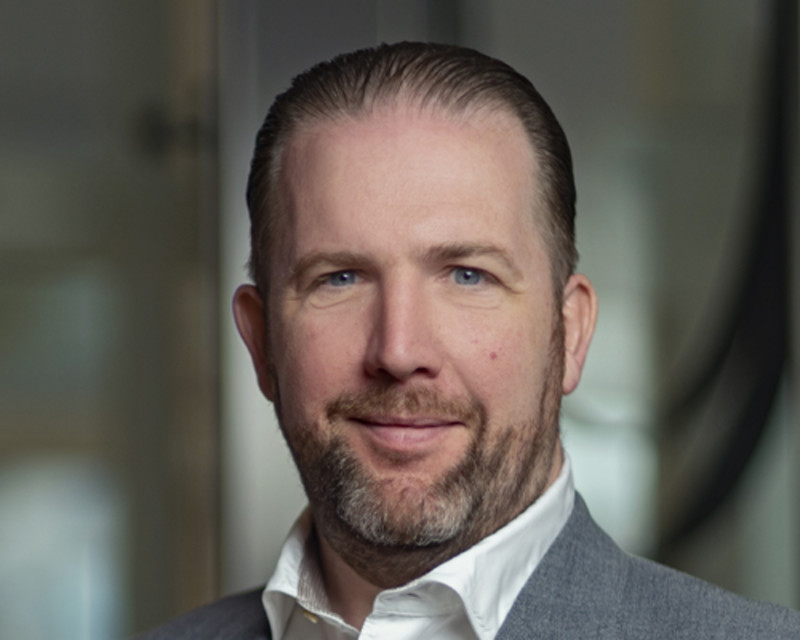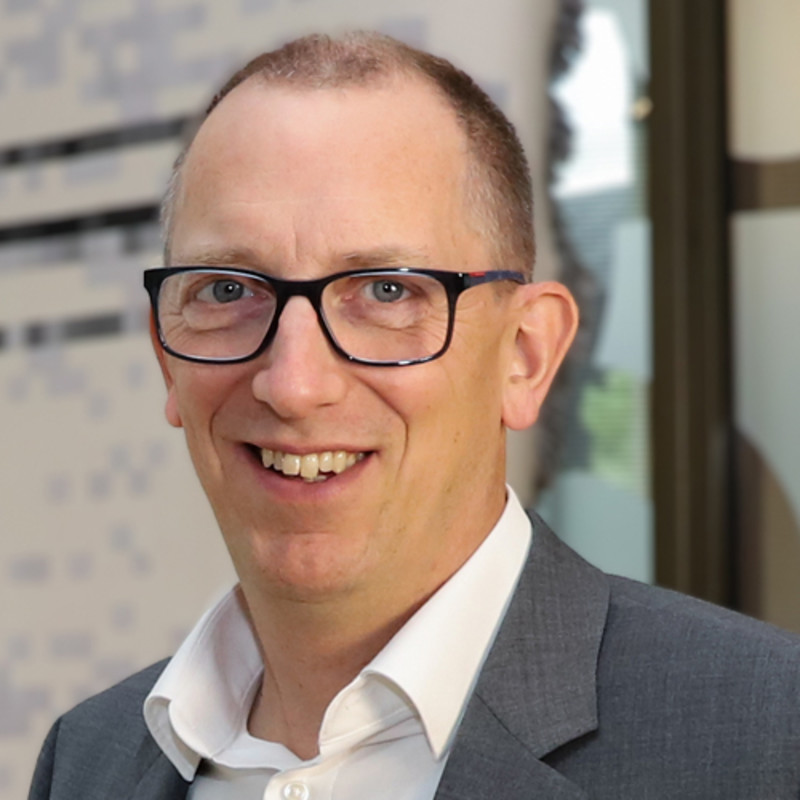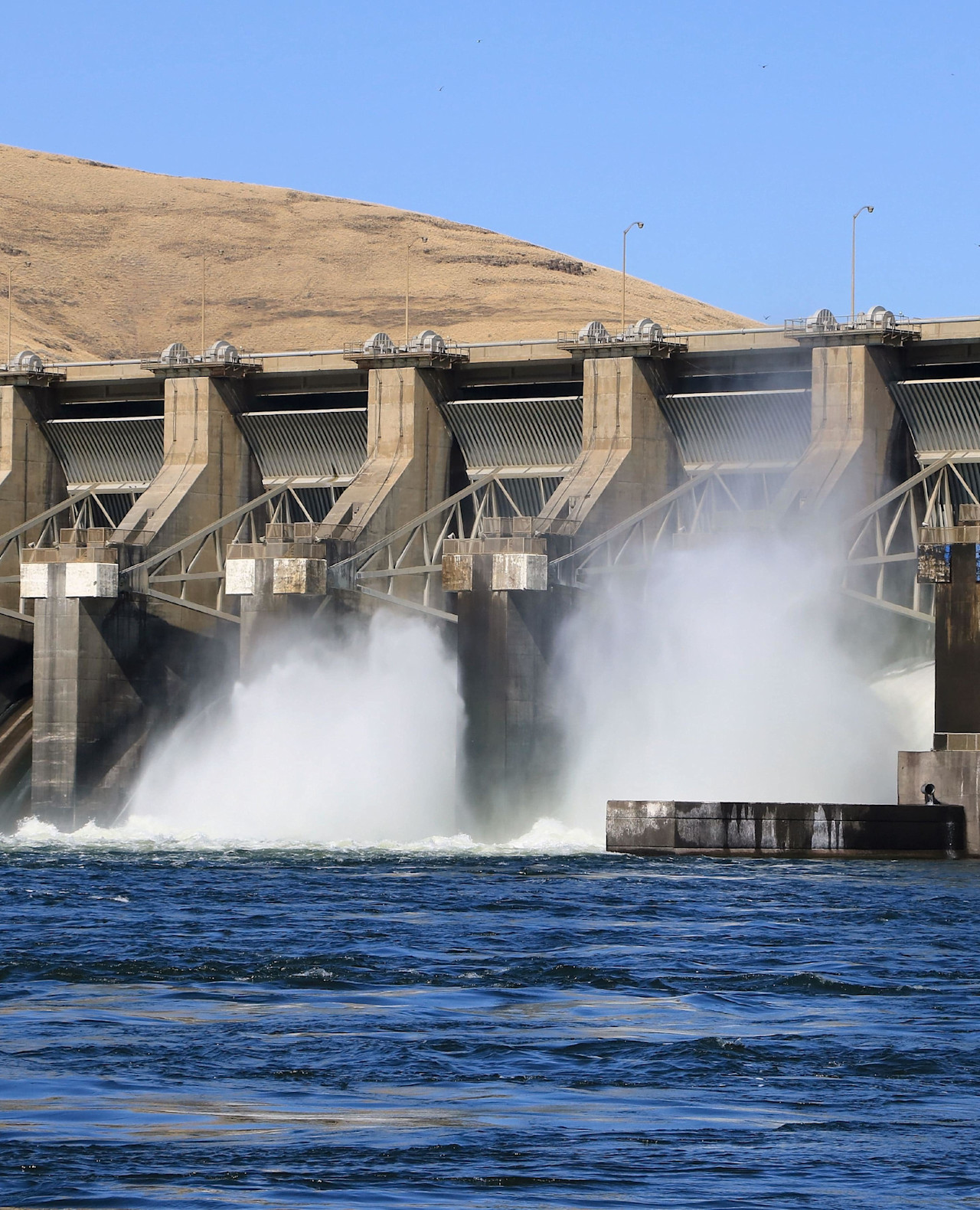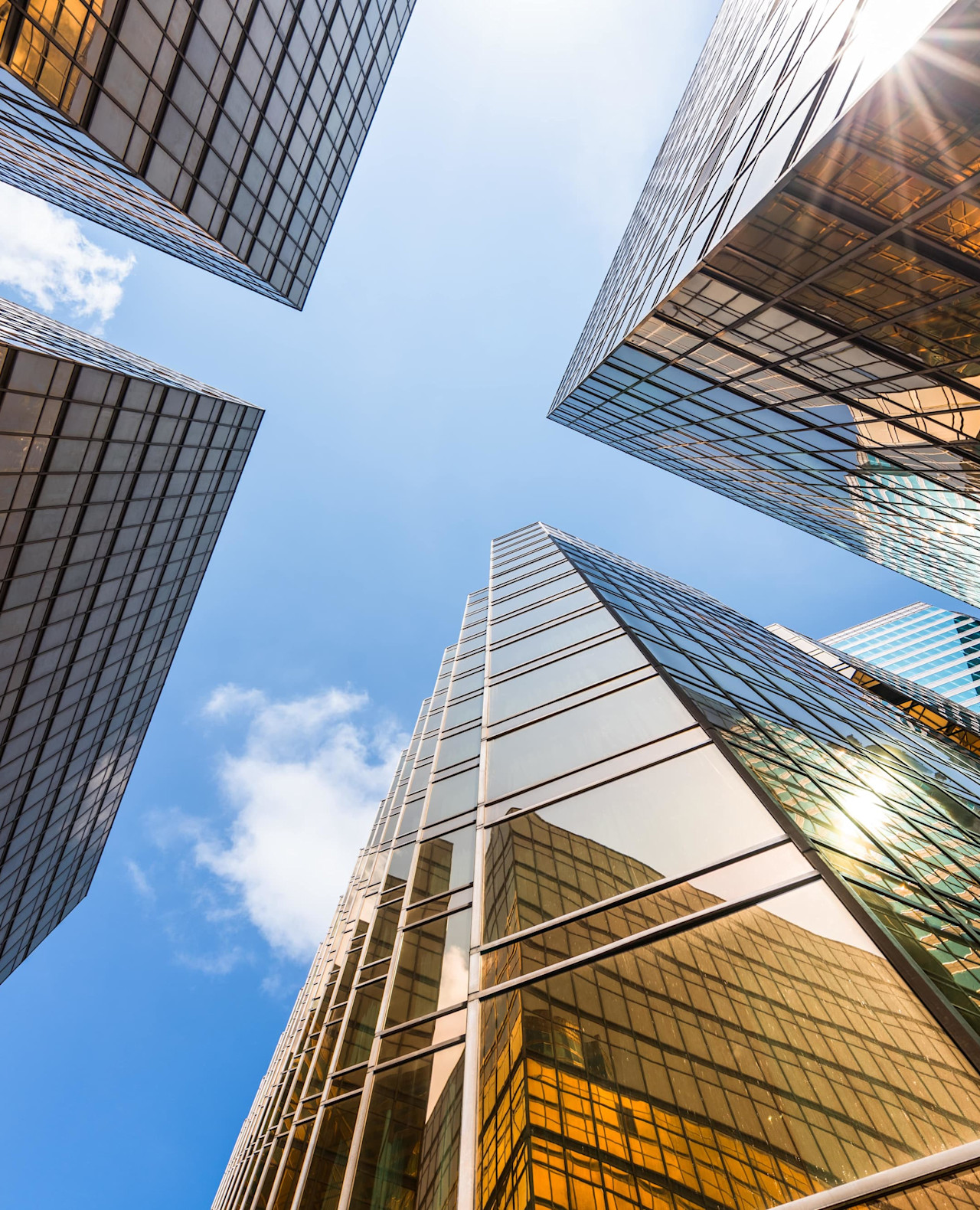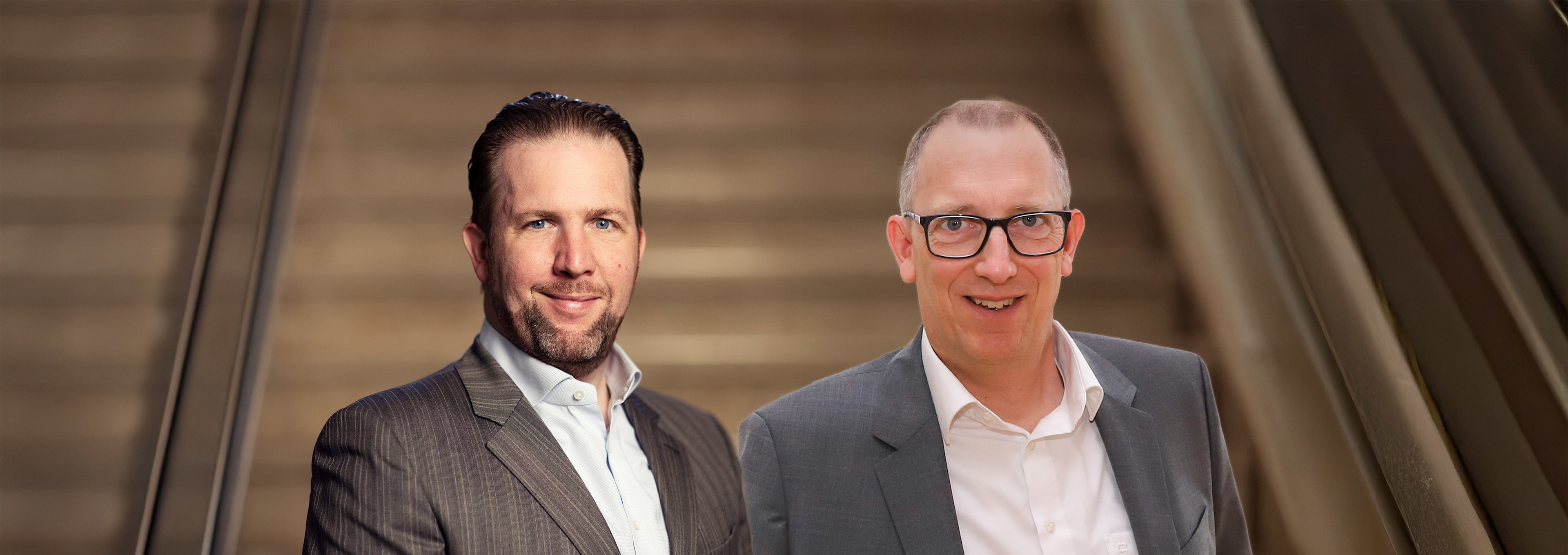

Podcast: How resilient are long-term investment themes in turbulent times?
Disruption has been the trend of 2025. Upheaval is everywhere, from geopolitics and trade, to the fields of technology, payments, ways of working and more. Does a thematic approach help equity investors to cut through all the noise, or could it be that investment themes or trends are also being disrupted?
This podcast is for professional investors only.
Richard Speetjens (RS): I think in the current geopolitical environment, of course, you do have some short term hiccups, perhaps in economic growth or a change in the inflation environment, but I don't think they really disrupt any themes. I think one thing which can be of impact might be regulation, because some of the underlying growth themes might be dependent on a specific type of regulation, which could be a headwind but also a tailwind. So change in that environment might impact, let's say, the growth of a specific theme or trend in the next couple of years. But we always look for those themes which are structured by nature and are relatively independent on economic or political cycles.
Welcome to a new episode of the Robeco Podcast.
Erika van der Merwe (EM): Disruption has been the trend of 2025. Upheaval is everywhere, from geopolitics and trade to the fields of technology, payments, ways of working and more. Now, does a thematic approach help equity investors to cut through all the noise and find opportunities? Or could it be that investment themes or trends which are considered to be structural, are also being disrupted in this case? My guests to discuss this are Ralf Oberbannscheidt, he’s Head of Thematic Investing capability and Richard Speetjens, Portfolio Manager for Robeco Global Consumer Trends. Welcome, gentlemen.
Richard Speetjens (RS): Thank you Erika.
Ralf Oberbannscheidt (RO): Thank you, Erika, for having us.
EM: As thematic investors. How do you perceive the various geopolitical, economic and policy events and shifts taking place? Ralf, you're joining us from Zurich. Do they shape your investment processes and decisions at all, or are you sticking with a view that you stick with your themes and your processes?
RO: I mean, look, we in thematics, we of course cannot neglect what's going on in the world. We see really a lot of disturbances with the geopolitical issues as you highlighted, and that has implications. However, we are not really in the business in forecasting some of the macro elements of investing. We're not really forecasting currencies or GDP levels or oil prices, as a matter of fact, but all these have implications on our themes. So where the impact comes is our fundamental bottom-up analysis. Where is the assessment of the current situation has to be pretty much minute per minute to be revalued or reassessed. So generally it's not impacting per definition our themes and we have a more longer term approach. And volatile markets have been there in the past. But some needs to be rethought in themes. Think about duplication of supply chains, independent energy, financial independence for instance in the fintech theme, so that are all relevant themes in this world.
EM: So Richard, just pushing a little deeper on that. How resilient are trends to any disruption, including the current policy related etc. disruption we are we're seeing. Do you need to adapt these themes in any way? Or is it simply a matter of. Ralf says you keep focusing on the bottom up, but perhaps do you need to adapt the way in which you buy exposure to those themes?
RS: Well, I think themes are very long term in nature, but the way you can benefit from those themes can change quite a bit over time. So if you think about some of the technological themes, for example, at an earlier stage, you would rather invest sometimes more in the suppliers or the hardware companies. Then you move more to the software companies, then you move to the enablers. And so we have seen multiple tech themes evolve over the last, let's say, 10 or 15 years. I think in the current geopolitical environment, of course, you do have some short=term hiccups, perhaps in economic growth or a change in inflation environment, but I don't think they really disrupt any themes. I think one thing which can be of impact might be regulation, because some of the underlying growth themes might be dependent on a specific type of regulation, which could be a headwind but also a tailwind. So a change in that environment might impact, let's say, the growth of a specific theme or trend in the next couple of years. But we always look for those themes which are structured by nature and are relatively independent on economic or political cycles.
EM: As a side note, give us an example or examples of regulation that could change your opportunity set.
RS: Well, of course, one which is now a big topic is of course, everything related to sustainability. So you do see, of course, there was a lot of acts being introduced by the previous government in the US. They are now a little bit, let's say, delayed. That doesn't mean that the problem is not there anymore, but the sustainability challenge we have. But let's say in the short term, perhaps there might be less financial incentive for companies to invest in renewing their energy sources or changing, let's say, the way they look for new materials or things like that. So that that can have a short term impact. But of course these short term regulations can have a huge impact on short-term share price movements, but we still believe the theme underlying theme, the demand for these solutions is still there, so there will also be a good time to pick those up. But yeah, it's just a matter of timing then.
EM: And Ralf, if we look at what's happened in equity markets since the start of the year, arguably there is now a broadening away from that very narrow opportunity set around the Magnificent Seven and related, also regionally, where Europe seems to be experiencing some sort of a renaissance. Does that at a tactical level alter your opportunity set?
RO: I mean, yes, it does. However, we got to consider our long-term investment horizons. And for instance, you do find in some of the more nature-based themes already a higher exposure to Europe. Just by nature of that, sustainability has been more on the forefront for European regulators, governments and companies. So that is for parts of our themes. Less so for other themes. Also keep in mind we are looking for purity and thematic. If you deal with themes like mobility or fintech, you don't want to have any dilution from parts that are not really in this value chain of the individual theme. So therefore, by nature we have a little bit more exposure towards mid-cap. And I'm generalizing here of course.
So yes a broadening of the market clearly helps us because the focus has been over the last two years almost on Mag Seven, on the US hegemony, not just macro but also on the company level. And we are more than that. I mean, again, there are strategies that have a focus a little bit more on the US than others, but generally we applaud that. As do other investors in other in other areas, of course, too, they get, relatively speaking, burdened by this narrow market – that narrow mind mindset that we that we experienced over the last two years.
EM: And part of this broadening is also towards emerging markets, but potentially in part because of the weakening dollar. How does that affect what you see? Do themes and trends behave differently in the emerging market universe? Richard?
RS: Well, perhaps take a step back. And what do we see as longer term themes here at Robeco? And the main three trends we have identified, let's say on a global level is Transforming Technologies. So how technology impacts every different sector of [what] we have. Then we have Changing Sociodemographics. So it can be around aging can bring about growing middle class. And the last one is Preserving Earth. And I would say all three of them are relevant, of course, in every part of the globe, but at a different stage.
So in some areas, developed markets are more advanced than emerging markets. I think what we do see in emerging markets, if we look at technologies that there's a lot of leapfrogging. So think, for example, about a lot of emerging markets, they immediately went to digital payments because they skipped the whole phase because they immediately had the technology available to go there. So that that's one which we certainly see.
I think on the Social Demographics, of course, the trends we're seeing in markets are very different in many Western markets [focused on] aging, immigration. Whereas in emerging markets, of course, is still a very young, fast growing population. So different consumer needs as well for those consumers. Preserving Earth so everything around sustainability challenges. I mean, it's a global phenomenon. But of course, different governments have a different priority level on their, let's say, budget proposals. So that's why also they're the theme is the same around the globe, but the stage where it is in the S-curve is probably different country by country.
EM: And per portfolio, per theme, where you have different areas of focus and specialization, are you comfortable taking a developed market exposure to that theme as well as within emerging markets, buying that exposure?
RS: Sure. Because in let's say – take for example, e-commerce as an example. I mean, in developed markets, we are, it's pretty clear who are the obvious winners in e-commerce. So you can just write the theme itself and just enjoy the growth of e-commerce, which is still growing a bit faster than retail, used to grow much faster in the past. But if you look at, for example, at a market like Latin America, e-commerce penetration is only single digits which is much lower than the rest of the world. So there the market is growing, the tide is lifting all the boats. So you can also have multiple exposures, multiple player exposure because the growth is still so fast. Whereas if you go more to a theme which is a little bit more developed and more mature, then you need to do more a bit more selective on the stock picking part.
RO: Maybe to add a little bit to Richard's comments here. So more on the functional side. Emerging markets really improve their governance, of course, over the last decade as well. So there's a closing the gap in terms of that investor ability, but also think about opportunity sets for thematic in today's world with the geopolitical changes. So you might find a really a granular emerging market approach interesting with supply chains changing with tariffs changing. So I think that that's one thing the theme does really well. We have been focused on emerging markets for a long time now. Really savvy investment there. And yeah we utilize that opportunity set I mean some themes a little bit more pronounced than others. But I think the timing is really interesting. Also, if you talk valuation of global equity markets of course.
EM: Ralf, which thematic areas are attracting the most attention from investors at the moment. And what would you say is driving that interest? Is there a risk that your your target audience, your client base might be influenced by fads or whatever's hitting the news headlines.
RO: Yeah. I mean, we had in the introduction, we had a little bit of discussion about what drives the investors. And part of that is the curiosity being interested in certain themes. And of course, the more granular theme is, the easier is the story, but also the more patience you have to bring to the table. So more lately with that narrow market exposure and the market performance, some themes just lagged relative to global equity markets although they delivered against what we expected them to do.
So in the current environment, investors are looking for more broader themes to diversify a little bit away. Diversify not just single stock risks but also maybe regulatory risk, etc. And that can be done in a couple of themes. We have broader themes. If you think about consumer, if you think circular economy, but also think multi-thematic because there you have all kinds of solutions that we are thinking about.
And we have a fantastic quant theme that can assist there as well. So it goes more into this broader theme. However, that might also be temporarily just a reflection of what investors see as of now. I'm sure there's always the curiosity coming down the road. And if you find an attractive theme, that is relevant, you will always pick the interest.
Maybe one more observation. A lot of our themes speak also to the nature of changes in geopolitics, so that is also a broader theme that we pick up nature-based, but not just focus on one item, not just on biodiversity or on climate change, but really having an all-encompassing approach that diversifies us a little bit.
EM: But with the popularity that we've had with Magnificent Seven and also just the obsession or the focus on the rising trend in AI, Richard, is that something that might be driving – maybe even artificially investor – interest in such themes?
RS: Well, I do think if we talk to our clients and also talk to other investors, I think the themes which probably are most – where we see most demand is certainly everything related to AI and also more around security in the broader sense. So it can be about defense. It can be about cybersecurity, given all the geopolitical tensions. I think especially that last one is still in a very early stage. We still feel that's also very much an underappreciated trend also for the foreseeable future, giving, well, everything which is happening around us right now. Of course, there will be more demand for security.
On AI I do feel we are now at a stage where we're moving from the first phase of AI adoption, like we've seen, like I mentioned earlier before, into a second stage, so that we're moving from just everybody having access to AI – so you buy more the chip companies – now moving also [to] What are the applications? What are the use cases? How can we, in an efficient way, make sure we have enough power to make use of AI because it's a very energy-intensive industry? So AI of course, it's the fourth or fifth, whatever you call it, let's say technological wave. So that's why it gets a lot of interest. But it's really expanding from that very narrow use case to more use cases and derivatives parts of the value chain which are getting more interest right now.
EM: I'm going to go back to how investors or asset owners see thematic investing within their portfolios. And Ralf touched on that a little earlier. How do you balance, Richard? How do you balance your conviction in a theme with managing portfolio risk? Because, you know, to an outsider, it might seem super concentrated if you, you know, focusing on, say, circular economy, how broad is that opportunity set? And given that, aren't you creating risks investing there?
RS: Well, I think thematic investing per se is always a very high active share strategy because we are looking for those pure-play companies. So companies with a high exposure to these individual themes. So that means you are certainly taking more bets. Like Ralf mentioned earlier, you also get a little bit more mid-cap/small cap exposure, because that's the companies where we do have a bit of – or where we have high thematic exposure. But we think it's very important to have – to be positioned across the value chain so that you also diversify your risks a little bit within a portfolio.
And some themes, of course, are very narrowly defined. Others have a little bit more possibility to diversify across the value chain. So we do in general see like Ralf also mentioned before, the broader strategy, see a little bit more interest because that's where you can do a little bit more spreading of your risks. You're not too dependent on one specific segment of the market. But there is also still a lot of clients who say, well, we want to do the theme selection ourselves. So we go for those niches and we rather invest in those specific themes, because that's what we feel is the highest upside potential if it might lead to a little bit more risk in the portfolio as well. But we do feel there's a good trade-off between that risk and higher return potential for that narrow theme as well.
EM: And Ralf, some would argue that the matching investing struggles to outperform the average benchmark. So it can be tough. Of course you could have years of underperformance and then years that fully make up – more than make up for that. How do you respond to that?
RO: Yeah. Well, I want to put some visual in your head. Sometimes thematic feels like you're building a nice sand castle at the beach, and it's all good and fine, but the creator of the sand castle ignored the flood or the tide coming in And all of a sudden your sandcastle is wiped out and you start from scratch. It's sometimes how it feels, especially in times of higher volatility, because markets then tend to go – or market participants – tend to revert to the mean to things participants know: a neutral allocation in sectors, maybe in countries. And that's always an initial reaction.
And hence the appetite seems a little bit limited. The performance seems to be – especially with more narrow themes – a little bit underperforming. But I think given where we are in 2025, I think there is actually a lot of transitioning happening, geopolitics mentioned, AI mentioned, looking for where are the next enabling themes, where they play a role. Energy transition is always – and you also face in some of our themes, a low point, so to speak, in sustainable sentiment or at least a lower point.
So I feel like for thematic again, the reversion to the mean. And we always, in our bottom-up process, we always check in with our themes. Where are we in terms of, for instance, EV penetration in our internal milestone assessment. So that is relevant. Stick to the process. Reflect with clients. Be transparent what you do and then these times shall pass. So again high volatility sometimes not as good for narrow themes. And we just came off a time of really high volatility with Liberation Day kicking it off.
EM: Richard, like Ralf, you've been doing this for many, many years. What are your reflections on this: the tough times and then even just the mental strength required to get through that, knowing that this is a solution that's going to be good for investors?
RS: Well, I think that the discussions we have with clients is certainly – “what does it add to your portfolio to invest in thematic solutions?” And I think, like I mentioned before, thematics often have a different alpha driver than many of your other capabilities. They are highly active share. Very often, although not always, there's a growth angle to thematic investing because we are looking for the structural growth trends. Normally you have a growth bias, which not all funds of course have. So it's the diversification there. You have a little bit more mid-cap exposure which hasn't worked of course, in the last couple of years, but hopefully it's up for a reversal. So that could be helpful.
And I think what a lot of clients certainly say is that if you want to talk to your end clients, it has a strong narrative. There's always a great story to talk around thematics, what's happening in AI, what's happening in mobility, what's happening in the smart energy or the sustainable energy segment. So there's always a nice as some clients said, it's always a great topic to start a conversation with a client on is talking about thematics. So I think that's besides, let's say more the financial reasons. There's also that that angle, which is very important for a lot of our clients.
EM: Yes. Time for a bit of a change in tempo with our quick quiz. So are you ready?
RS: Sure.
EM: Our questions were short answers. Ralf, where were you on Liberation Day?
RO: Well, I remember I was at home and I couldn't believe the news: a blanket tariff on every country that the US dealt with. And I was like, wow, some genius came up with some really – there was some work behind it and granular work, and I was curious what instrument can I find to see instant market reaction? Usually currency is helping you out on that, but yeah.
Then it became pretty quickly pretty clear that that was just a blanket approach. There was no rhyme or reason behind it, and a lot of variables not considered in the announcement of the blanket tariffs. So that was quite frustrating to see how vigilant and really how quickly market reacted, but also looked through that there was not much behind it yet.
EM: So Richard, I'm going to ask you the next question. If you had to describe 2025 market moves in a movie title or a song title. What would it be? And Ralf is allowed to help you if you need to find a friend.
RS: Ooh! The markets. Well, there's certainly something with a quick comeback, because I've really been surprised how quick the market has rebounded from, let's say, the April lows. When the market feared on all the uncertainty. And even though the uncertainty is still there, the market seems to have got quite a good hold of it. So it's something with the Comeback Kid or something like that. I would say is very much relevant for this market.
RO: Good one.
EM: And I'm going to ask both of you which of the following four characteristics is the most desirable characteristic for a thematic investor to have? Ralf, starting with you, which of these four: patience, curiosity, innovative ability, or being very good at financial model building?
RO: I'm doing a little bit the contrarian because, you know, the others sometimes what the metric is about. But the model building is critical because you at the end of the day, we're fundamental investors. And of course the others are – it’s tough, for me, they're equally important. But it's not just about curiosity, for instance, for me. So also you got to have the skill set. Also markets are sometimes getting a little bit more institutionalized. And of course also wholesale investors are becoming much more sophisticated. They want to know, “hey, do you know that company inside out? And how is that related to the theme?” So a little contrarian answer you get here for me.
EM: I like it. Richard?
RS: Well, I would say certainly curiosity for me remains a key characteristic to look for, also in new people perhaps in the theme because for me, change is the only constant in this. In this world, you really have to assume that the status quo will not be there three or five years from now in certain themes. So to remain curious and to always challenge your own assumptions, I think for me is really important.
EM: Now in closing reflections, are there any emerging themes that we're seeing this year and perhaps having started last year that you think the market is currently underappreciating, but that could be big in coming years?
RS: Well, I would say, and of course it's a topic being discussed right now a lot is deglobalization. I think in the last 20 years, the themes are all moving towards a global world and a completely integrated supply chain. I think we're now seeing, we're at the beginning of, let's say, the reversal of part of that, because we do see more protectionism. We see more local production supply chains. So we see more reshoring. We see more interest in security to protect your data, your borders. So I do feel that that is a theme which is early in its days and might have much more repercussions than we probably expect. So we think that's one which is here to stay.
EM: Ralf, I want to ask you the opposite. Are there any themes that you feel that at the moment are being overhyped?
RO: I wouldn't say overhyped. Everything has its place in investment, and markets tend to pretty quickly sort out what is hype and what is not. We're always skeptical of really, really narrowly defined themes. I remember I dealt with a railroad pitch, so to speak, and it was very narrowly defined. It was all linked to GDP growth. There were like 70 stocks that you could invest in. So we really try to avoid these kinds of like short-term themes/hypes. We look for some profitability of companies down the road. You cannot just invest in all kinds of unicorns. So I would say no, it's not. The market is as I said, it's been really efficient in sorting that out.
But one thought I want to leave you with: why things haven't happened. So you see a lot of, especially in sustainability, a lot of lagging, of social themes. And the main reason is it's just tough to get the data. Tough to engage with companies because these social components are so enshrined in the DNA of companies, sometimes for decades or hundreds of years in some examples, but also with people. It's a very close-to-our-heart subject. That's why it's tough to put numbers behind it. And I think the market was a little bit ignorant of that whole idea in the past.
But no, there's nothing where I would say, “hey, this is just a – ”. People think maybe AI but there's certainly applications for AI unlike – I remember the whole UMTS and 3G discussion in the late 90s, early 2000, there was no visual result out of that. It was happening seven, eight years later with data streaming and mobile streaming, etc. Here we see a lot of the applications already. So I think market efficiency prevails.
EM: Yes. And then finally and as briefly as possible, why should investors consider thematic equity investing in 2025. What's its biggest draw for the next few years? Richard?
RS: Well, like I said, it's a different alpha driver. It's a strong narrative. It has a growth angle. So it's a good complement to any broad global equity strategies.
EM: Thank you Ralf.
RO: A lot of disturbances that we've experienced during the year are playing almost into the hands of the America[s], I think supply chains and duplications of that being necessary transition in energy. And I think we get more encouraged, almost the more on the geopolitical front we've seen in during the year.
EM: Ralf and Richard, thanks so much for your time, for your insights. It was great talking to you.
RS: Thanks, Erika.
RO: Thank you. Thank you so much.
EM: And thank you to our listeners for being part of this discussion. If you've enjoyed this episode, please subscribe and share the podcast link within your network. Stay tuned for more market perspectives in our next episode. This financial markets podcast and Robeco's investor-themed podcasts are available on all major podcast platforms, as well as on the Robeco website. Until next time.
Thanks for joining this Robeco podcast. Please tune in next time as well. Important information: this publication is intended for professional investors. The podcast was brought to you by Robeco and in the US by Robeco Institutional Asset Management US Inc., a Delaware Corporation, as well as an investment advisor registered with the US Securities and Exchange Commission. Robeco Institutional Asset Management US is a wholly owned subsidiary of ORIX Corporation Europe N.V., a Dutch investment management firm located in Rotterdam, the Netherlands. Robeco Institutional Asset Management B.V. has a license as manager of UCITS and AIFs for the Netherlands Authority for the Financial Markets in Amsterdam.




